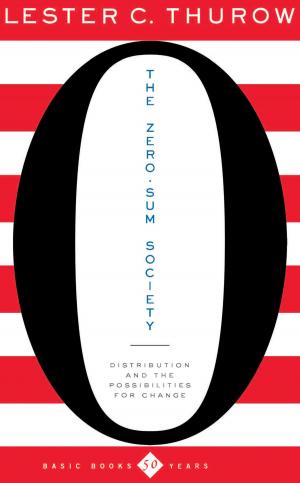| Author: | Richard Rogers | ISBN: | 9780786722907 |
| Publisher: | Basic Books | Publication: | August 1, 2008 |
| Imprint: | Basic Books | Language: | English |
| Author: | Richard Rogers |
| ISBN: | 9780786722907 |
| Publisher: | Basic Books |
| Publication: | August 1, 2008 |
| Imprint: | Basic Books |
| Language: | English |
Nothing else damages the earth's environment more than our cities. As the world's population has grown, our cities have burgeoned, and their impact on the environment worsened. Meanwhile, from the isolated, gated communities within Houston and Los Angeles, to the millions of residents of Bombay living in squalor, the city has failed to serve its ideal function—as the cradle of civilization, the engine of culture, and the inspiration for community and citizenship. In Cities for a Small Planet, Sir Richard Rogers, one of the world's leading architects and the designer of the Pompidou Center in Paris, demonstrates how future cities could provide the springboard for restoring humanity's harmony with its environment.
Rogers outlines the disastrous impact cities have had and will continue to have on our world, from waste-saturated Tokyo Bay, to the massive plumes of pollution caused by London's traffic, to the depleted water resources of Mexico City. He traces these problems to the underlying social and cultural values that create them—unchecked commercial zeal, selfish individualism, and a lack of community. Bringing to bear concepts such as that of “open-minded” space—places within cities that serve multiple functions such as markets, parks, and sidewalk cafes—he explains how urban design can be used to give citizens a sense of shared experience. The city built with comfortable and safe public space can bring diverse groups together and breed a sense of tolerance, awareness, identity, and mutual respect. He calls for a new theoretical shift in the way cities do business and interact with the environment, arguing that many products come to market and are sold without figuring their social or environmental cost.
Rogers goes on to describe the city of the future: one that is sustainable within its own environment; that can make a positive impact on its surroundings; that encourages communication among its citizens; that is compact and focused around neighborhoods; and that is beautiful, a city whose buildings and spaces spark the creative potential of its inhabitants.As our population grows larger, our planet grows smaller. Cities for a Small Planet is a passionate and eloquent blueprint for the cities we must create in response, cities that provide for the needs of both their residents and the earth on which they live.
Nothing else damages the earth's environment more than our cities. As the world's population has grown, our cities have burgeoned, and their impact on the environment worsened. Meanwhile, from the isolated, gated communities within Houston and Los Angeles, to the millions of residents of Bombay living in squalor, the city has failed to serve its ideal function—as the cradle of civilization, the engine of culture, and the inspiration for community and citizenship. In Cities for a Small Planet, Sir Richard Rogers, one of the world's leading architects and the designer of the Pompidou Center in Paris, demonstrates how future cities could provide the springboard for restoring humanity's harmony with its environment.
Rogers outlines the disastrous impact cities have had and will continue to have on our world, from waste-saturated Tokyo Bay, to the massive plumes of pollution caused by London's traffic, to the depleted water resources of Mexico City. He traces these problems to the underlying social and cultural values that create them—unchecked commercial zeal, selfish individualism, and a lack of community. Bringing to bear concepts such as that of “open-minded” space—places within cities that serve multiple functions such as markets, parks, and sidewalk cafes—he explains how urban design can be used to give citizens a sense of shared experience. The city built with comfortable and safe public space can bring diverse groups together and breed a sense of tolerance, awareness, identity, and mutual respect. He calls for a new theoretical shift in the way cities do business and interact with the environment, arguing that many products come to market and are sold without figuring their social or environmental cost.
Rogers goes on to describe the city of the future: one that is sustainable within its own environment; that can make a positive impact on its surroundings; that encourages communication among its citizens; that is compact and focused around neighborhoods; and that is beautiful, a city whose buildings and spaces spark the creative potential of its inhabitants.As our population grows larger, our planet grows smaller. Cities for a Small Planet is a passionate and eloquent blueprint for the cities we must create in response, cities that provide for the needs of both their residents and the earth on which they live.















